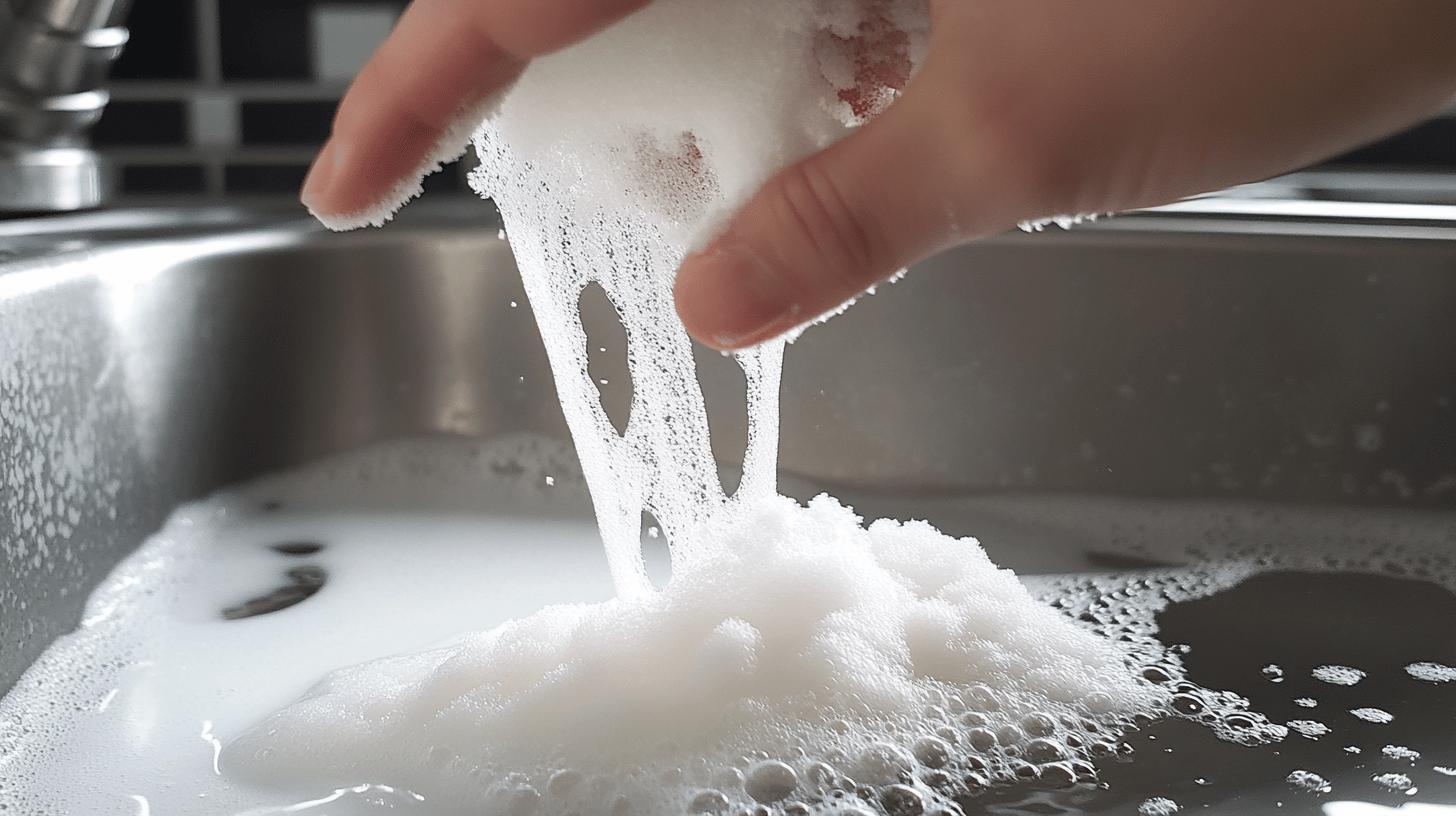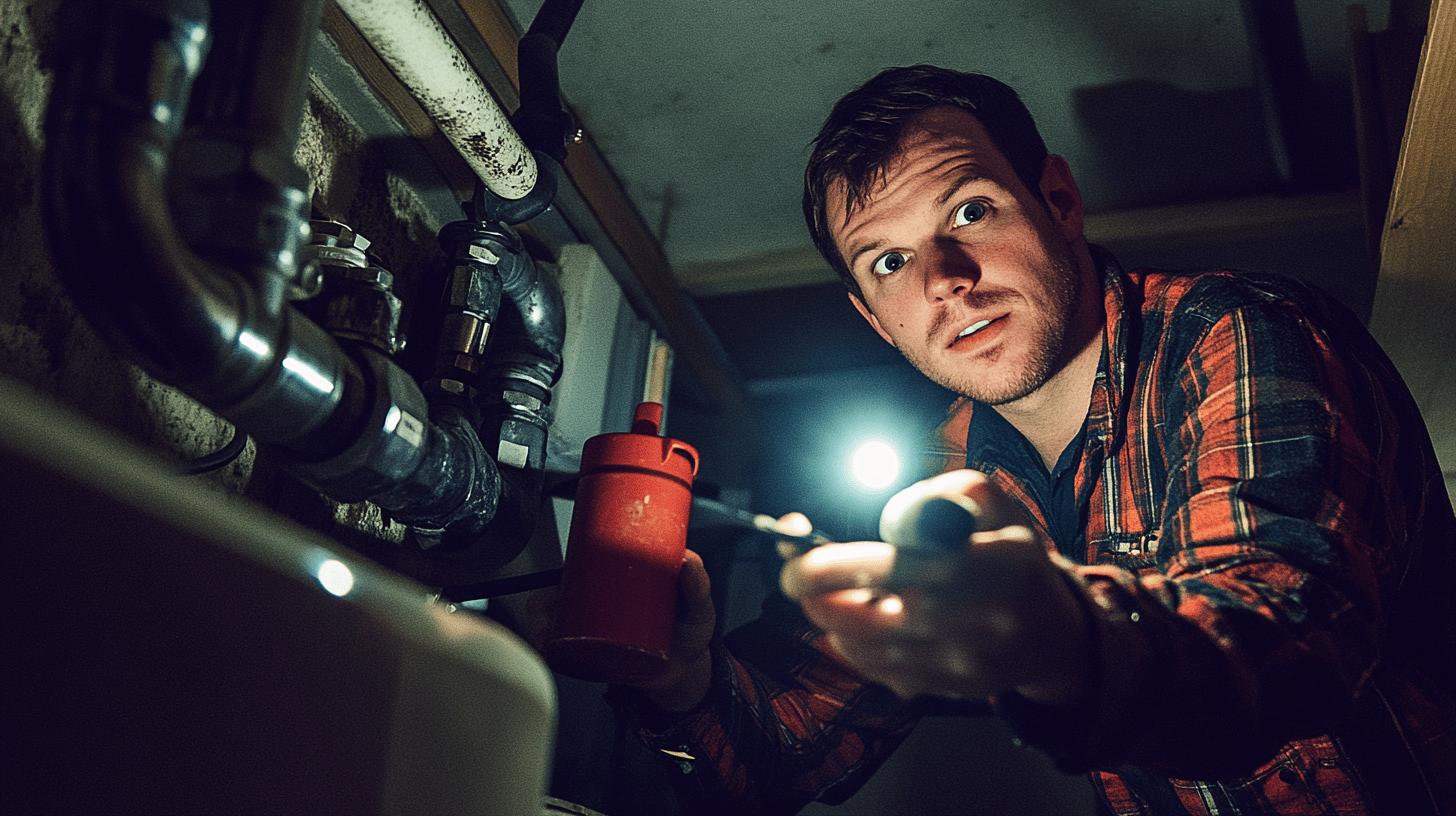TL;DR:
- Importance of Cleaning: Prevents reduced water pressure, discolored water, and contamination.
- Common Problems: Blockages, rust/sediment buildup, odd flavors/odors.
- Cleaning Methods:
- DIY: Vinegar & baking soda (low cost, mild clogs), hot water & bleach (caution), wire brush (be cautious).
- Professional: Hydro jetting ($100-$500), mechanical cleaning (high effectiveness).
- Preventive Maintenance:
- Install water softeners, use pipe filters, conduct inspections, monitor water quality.
- Safety Tips: Use protective gear, ensure ventilation, verify professional safety standards.
Ever noticed your water pressure getting weaker or your tap water tasting weird? These could be signs your water pipes need a good cleaning. Keeping your pipes clean is key for good water quality and better water flow in your home. In this article, we’ll break down why clean pipes matter, how to spot issues, cleaning methods, and tips to prevent problems. Knowing this stuff will help you keep your home’s water safe and flowing smoothly.
Understanding the Need for Cleaning Inside Water Pipes
Keeping your water pipes clean is important for good water quality and smooth flow. Over time, debris, minerals, and rust can build up in the pipes, which lowers water pressure and can make the water look discolored. This can mess with your daily routine and how your appliances work. Even worse, it can bring health risks if harmful stuff gets into your water.
Common problems stemming from dirty pipes include:
- Reduced water pressure
- Discolored water
- Unusual tastes or odors
If your water pressure drops, it might mean blockages are forming in your pipes. Discolored water usually means rust or sediment is in the pipes, which points to corrosion. Weird tastes or smells can mean there are contaminants or bacteria, which can be risky for your health. These issues can mess with daily tasks like cooking or bathing and could damage appliances like dishwashers or washing machines. Regular cleaning and maintenance help prevent these problems, keep your plumbing working well, and ensure safe water for your home.
Common Methods for Cleaning Inside Water Pipes

Various methods, DIY or professional, can clean your pipes effectively. Each has its pros and cons, so choose wisely.
- Vinegar and baking soda: A simple DIY solution, this mixture helps break down mild clogs and mineral deposits with an effervescent reaction.
- Hot water flush with bleach: This DIY technique combines hot water and bleach to disinfect and remove minor blockages. Use it with caution, as bleach can harm certain pipe materials.
- Hydro jetting: A professional service using high-pressure water jets to clear pipes. Highly effective for severe clogs and mineral buildup, it requires specialized equipment.
- Chemical cleaning: Commercial chemical cleaners dissolve clogs efficiently. They are effective but pose risks like pipe damage and exposure to harsh chemicals.
- Mechanical cleaning with a wire brush: Professionals use this method to scrub away thick deposits inside pipes. It’s effective but should be done carefully to avoid pipe damage.
When picking a cleaning method, think about both how well it works and how safe it is. DIY fixes like vinegar and baking soda are good for small problems but might not handle serious buildup. Professional options like hydro jetting are more effective but more expensive, and they need an expert to avoid damage. Mechanical cleaning is strong but also needs a pro to make sure the pipes stay intact.
DIY vs Professional Cleaning: What You Need to Know
DIY Cleaning
Can you clean your pipes yourself? Yes, DIY cleaning is a budget-friendly option for small issues. You can use things like vinegar, baking soda, and a wire brush, which are cheap and easy to get. These work well for minor clogs and buildup. Just remember to stay safe—make sure the area is well-ventilated, and wear gloves and goggles. DIY methods are great for small problems, but they might not be enough for serious blockages or heavy buildup, which may need stronger solutions.
Professional Cleaning
Is hiring a plumber worth it? In many cases, yes. Pros have the skills and tools to handle tough clogs and buildup that DIY methods can’t fix. Techniques like hydro jetting use high-pressure water to clean pipes thoroughly. While it can cost between $100 and $500, it ensures a deep clean and reduces the chance of damage. Plus, professionals safely deal with chemicals and can check for hidden plumbing problems, avoiding the safety risks of doing it yourself.
|Cleaning Method |Approximate Cost|
|————————|—————-|
|DIY Cleaning |Minimal, varies by materials|
|Professional Cleaning |$100 – $500|
Preventive Maintenance for Water Pipes

Regular maintenance keeps your plumbing in good shape by cutting down on mineral buildup and corrosion. This helps keep the water flowing smoothly and prevents contamination, ensuring clean water in your home.
- Install water softeners
- Use pipe filters
- Conduct regular pipe inspections
- Monitor water quality
Water softeners lower water hardness, stopping scale and mineral buildup. Pipe filters catch sediments to prevent clogs. Regular inspections spot problems early so you can fix them in time, and keeping an eye on water quality helps catch contamination before it becomes an issue. Preventive maintenance saves money on big repairs and keeps your water clean and safe. It also improves your plumbing’s efficiency, extends its lifespan, and ensures better water quality and pressure for your home’s health and comfort.
Tools and Safety Tips for Cleaning Water Pipes
Having the right tools is key for cleaning pipes effectively. A wire brush can help scrub away buildup inside the pipes. Vinegar and baking soda are great for breaking down small clogs naturally and cheaply, making them perfect for simple home cleaning jobs.
- Wire brush
- Vinegar
- Baking soda
- Protective gloves and goggles
Safety comes first, whether you’re cleaning pipes yourself or hiring a pro. Make sure there’s good ventilation when using chemicals to avoid fumes, and always wear gloves and goggles to protect against splashes. If you’re hiring someone, check that they follow safety standards, especially with high-pressure tools or strong chemicals. These tips help make sure the cleaning process is safe and effective.
Final Words
Knowing why it’s important to clean the inside of your water pipes is essential for keeping your water quality and flow at their best. Spotting signs of contamination, like low water pressure or discolored water, helps keep your household’s water clean and efficient.
Whether you go for DIY methods like vinegar and baking soda or hire pros for hydro jetting, picking the right method is important. Regular maintenance, like installing filters, also helps extend the life of your pipes.
In the end, choosing the best cleaning method will help you effectively clean your water pipes, giving you peace of mind and reliable plumbing.
FAQ
Can you clean inside your water pipes with vinegar?
Cleaning inside your water pipes with vinegar can be effective. Mixing vinegar with baking soda creates a natural cleaning solution that can help dissolve minor clogs and residue in pipes.
How do you clean water supply pipes in your house with vinegar?
To clean water supply pipes using vinegar, pour a mixture of vinegar and baking soda into the pipes. Let it sit for 30 minutes, then flush with hot water to clear out debris.
What type of water pipe cleaning chemical is recommended?
Chemical cleaning can vary based on pipe material and condition. For PVC pipes, ensure you use a chemical cleaner safe for the material, or consider professional advice for heavy buildup.
How to clear blocked water pipes at home?
Clearing blocked water pipes can involve using a plunger, a plumber’s snake, or a solution of vinegar and baking soda. For severe blockages, professional hydro jetting might be necessary.
How to clean water lines from a well?
Cleaning water lines from a well involves running vinegar through the system to dissolve mineral buildup and flushing thoroughly with clean water. Regular inspections are recommended for long-term maintenance.
How to flush your house water pipes?
To flush house water pipes, turn off the main water supply. Open all faucets and let them drain completely, then simultaneously turn on the main supply to flush clean water through.
How can you clean the inside of a bowl pipe?
Cleaning the inside of a bowl pipe can be done by soaking it in a solution of isopropyl alcohol and salt, then rinsing and drying thoroughly. This method helps remove residue effectively.

